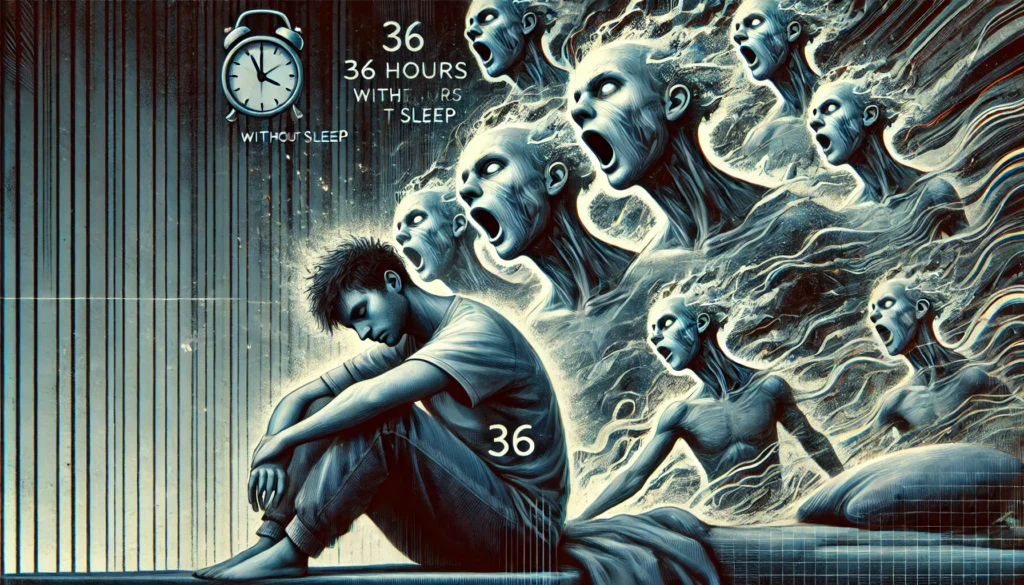Sleep is not simply a time of rest; it is a dynamic and restorative process crucial to various bodily functions. The significance of sleep extends beyond just feeling refreshed, impacting every aspect of human health.
You may also like: The Connection Between Sleep and Memory
Cognitive Restoration
During sleep, the brain undergoes several processes that are vital for cognitive functioning. Memory consolidation takes place, where short-term memories are transformed into long-term ones. This process is critical for learning and retaining information. Additionally, sleep helps clear out waste products from the brain, which can accumulate during waking hours, thereby maintaining neurological health.
Physical Rejuvenation
Sleep plays a crucial role in repairing and rejuvenating the body. During deep sleep stages, growth hormones are released, which aid in cell repair and growth. This is particularly important for muscle recovery, making sleep essential for athletes and those engaged in physical activities. Moreover, sleep supports the immune system by bolstering its defenses against infections and diseases.
Emotional Balance
Emotionally, sleep is a stabilizer. It helps regulate mood and stress levels. Lack of sleep can lead to heightened emotional responses and difficulty managing stress. Adequate sleep contributes to better mood regulation and resilience against emotional disturbances, which is why sleep deprivation is often linked to mood disorders such as anxiety and depression.
Metabolic Regulation
Metabolically, sleep is an essential regulator. Adequate sleep helps maintain a balanced metabolism, affecting appetite and energy use. Sleep deprivation can disrupt these processes, leading to weight gain and increased risk of metabolic disorders such as diabetes. This highlights the importance of sleep for maintaining a healthy weight and metabolic health.
Stages of Sleep Deprivation
Sleep deprivation can be segmented into various stages, each with distinct symptoms and health implications. Recognizing and understanding these stages is crucial for timely intervention and management.
Stage 1: Acute Sleep Deprivation
Acute sleep deprivation is the initial phase experienced after 24 hours without sleep.
Cognitive Decline
At this stage, cognitive faculties begin to falter. Tasks that require attention, concentration, and complex thought become challenging. Simple tasks might take longer, and errors become more frequent. This decline in cognitive function can affect professional performance, especially in jobs that demand high concentration levels.
Emotional Instability
Emotionally, individuals may experience irritability and mood swings. The inability to regulate emotions effectively leads to minor frustrations feeling overwhelming. This can strain interpersonal relationships and affect decision-making processes, both personally and professionally.
Physiological Stress
Physiologically, the body starts to react to the lack of sleep by increasing stress hormone levels such as cortisol. This can suppress immune function, making individuals more susceptible to infections. The body’s response is akin to being in a state of heightened alert, which can be taxing over time.
Stage 2: Moderate Sleep Deprivation
After 36 hours of wakefulness, moderate sleep deprivation sets in, with more pronounced symptoms.
Intensified Cognitive Impairments
Cognitive impairments intensify, with severe difficulties in maintaining focus and memory retention. Tasks requiring critical thinking and problem-solving become increasingly difficult, which can severely impact job performance and safety.
Microsleeps and Safety Risks
Microsleeps, or brief involuntary episodes of sleep, become more frequent. These can be particularly dangerous in situations that require constant attention, such as driving or operating machinery. The risk of accidents increases significantly due to these lapses.

Heightened Emotional Sensitivity
Emotionally, individuals may experience heightened sensitivity and exaggerated emotional responses. This can lead to increased conflicts in personal and professional settings, as the ability to process emotions rationally is compromised.
Stage 3: Severe Sleep Deprivation
Severe sleep deprivation occurs after 48 hours without sleep, with serious health implications.
Hallucinations and Paranoia
Hallucinations and paranoia may manifest, as the brain struggles to distinguish between reality and imagination. These symptoms reflect the profound impact of sleep deprivation on mental health, making it a critical stage that requires immediate attention.
Drastic Cognitive and Physical Decline
Cognitively, the ability to process information and respond to stimuli deteriorates dramatically. Physically, the body experiences increased inflammation and disrupted glucose metabolism, raising the risk of chronic conditions.
Risk of Chronic Diseases
Chronic sleep deprivation at this stage can lead to long-term health issues, including obesity, diabetes, and cardiovascular diseases. The cumulative stress on the body underscores the importance of addressing sleep deprivation promptly.
Beyond 72 Hours: Extreme Sleep Deprivation
Surpassing 72 hours without sleep leads to extreme sleep deprivation, where the body and mind are severely compromised.
Profound Cognitive Dysfunction
Cognitive processes become profoundly impaired, with severe disruptions in logical thinking and reality perception. The risk of severe psychological disturbances, including psychosis, increases as the brain struggles to function.
Critical Health Risks
Extended sleep deprivation leads to critical health risks, both mentally and physically. The body’s systems begin to fail under the prolonged stress, highlighting the necessity of intervention to prevent irreversible damage.
Urgent Need for Sleep Intervention
At this stage, immediate intervention is crucial. Professional help may be required to restore normal sleep patterns and prevent permanent health consequences. The extreme nature of symptoms indicates a critical breakdown in the body’s ability to cope.
Sleep Deprivation Effects
The effects of sleep deprivation are cumulative and pervasive, impacting various aspects of health and performance.
Cognitive Effects
Cognitive functions are significantly impaired by sleep deprivation.
Attention and Memory
Attention spans shorten, and working memory becomes unreliable. This affects daily functioning, from professional tasks to personal responsibilities. The ability to learn new information and recall past knowledge is compromised, impacting academic and career success.
Decision-Making and Creativity
Decision-making processes slow down, and creativity suffers. The ability to generate innovative solutions and think outside the box diminishes, which can hinder problem-solving in both professional and personal contexts.
Long-Term Cognitive Health
Chronic sleep deprivation poses a threat to long-term cognitive health, increasing the risk of neurodegenerative diseases. The cumulative impact on brain function underscores the importance of prioritizing sleep for cognitive longevity.
Emotional and Psychological Effects
Emotionally, sleep deprivation takes a toll on psychological well-being.
Mood Disorders
Chronic sleep deprivation is linked to the development and exacerbation of mood disorders such as depression and anxiety. The inability to regulate emotions effectively can lead to persistent negative mood states.

Stress and Emotional Regulation
The ability to manage stress and regulate emotions diminishes, leading to increased irritability and emotional outbursts. This can strain relationships and affect social interactions, highlighting the importance of sleep for emotional health.
Interpersonal Relationships
Sleep deprivation can lead to difficulties in maintaining healthy interpersonal relationships. The heightened emotional reactivity and decreased empathy can create friction and misunderstandings in social settings.
Physical Health Effects
Physically, the impact of sleep deprivation is profound and far-reaching.
Immune System Compromise
The immune system weakens, making individuals more susceptible to infections and illnesses. This increases the risk of frequent illnesses and prolonged recovery times, affecting overall health.
Metabolic Health and Weight
Metabolic processes are disrupted, leading to an increased risk of weight gain and obesity. Sleep deprivation affects hormones that regulate appetite, leading to unhealthy eating habits and weight gain.
Risk of Chronic Diseases
The long-term effects of sleep deprivation include an increased risk of chronic diseases such as diabetes, heart disease, and stroke. These conditions underscore the critical role of sleep in maintaining overall health.
Mitigating Sleep Deprivation
Although the effects of sleep deprivation can be severe, there are strategies to mitigate them effectively.
Establish a Sleep Routine
Creating and maintaining a consistent sleep routine can have a profound impact on sleep quality.
Regular Sleep Schedule
Establishing a regular sleep schedule helps regulate the body’s internal clock, promoting better sleep quality. Aim to go to bed and wake up at the same time every day to reinforce your body’s natural sleep-wake cycle.
Weekend Consistency
Maintaining consistency on weekends is crucial to avoid disrupting your sleep schedule. Resist the temptation to stay up late and sleep in, as this can interfere with your body’s rhythm.
Gradual Adjustments
If you need to adjust your sleep schedule, do so gradually. Small, incremental changes are more sustainable and less disruptive than drastic shifts.
Optimize Your Sleep Environment
Your sleep environment plays a significant role in the quality of your sleep.
Dark and Quiet Room
Ensure your bedroom is dark and quiet to promote restful sleep. Consider using blackout curtains and earplugs to block out light and noise that might disturb your sleep.
Comfortable Temperature
Keep your bedroom at a comfortable temperature, as extremes can disrupt sleep. A cool, slightly chilly environment is generally conducive to better sleep quality.
Minimize Distractions
Minimize distractions in your sleep environment, such as electronic devices. Keep your bedroom free of screens and other distractions to create a peaceful atmosphere.
Prioritize Relaxation
Relaxation techniques can ease the transition into sleep.
Meditation and Deep Breathing
Incorporate meditation and deep breathing exercises into your routine to promote relaxation. These practices can help calm the mind and prepare the body for sleep.
Gentle Yoga and Stretching
Engage in gentle yoga or stretching exercises to release tension and relax the body. These activities can help ease muscle tension and promote a sense of calm.
Pre-Sleep Routine
Develop a pre-sleep routine that includes relaxing activities. Avoid stimulating activities and electronic devices at least an hour before bed to help signal to your body that it’s time to wind down.
Limit Caffeine and Alcohol
Caffeine and alcohol can disrupt sleep patterns if consumed in excess.
Timing of Consumption
Be mindful of when you consume caffeine and alcohol, especially in the hours leading up to bedtime. Limit caffeine intake in the afternoon and avoid alcohol close to bedtime to prevent sleep disruptions.
Moderation and Alternatives
Practice moderation with these substances and consider alternatives such as herbal teas or decaffeinated beverages. These options can provide a soothing experience without interfering with sleep.
Understanding Individual Sensitivity
Recognize your individual sensitivity to caffeine and alcohol. Some people may be more affected by these substances than others, so adjust your consumption accordingly.

Conclusion
Understanding the stages and effects of sleep deprivation is vital for anyone invested in health and wellness. By recognizing the signs of sleep deprivation and implementing strategies to improve sleep hygiene, you can significantly mitigate its impacts. Prioritizing sleep as an essential component of a healthy lifestyle empowers you to make informed decisions, whether guiding clients, writing an article, or optimizing your health. Embrace the power of sleep and its profound impact on well-being, and take proactive steps to ensure it remains a priority in your life.
Further Reading:
The Effects of Sleep Deprivation
Sleep Deprivation: Definition, Side Effects, and Treatment
Important Note: The information contained in this article is for general informational purposes only, and should not be construed as health or medical advice, nor is it intended to diagnose, prevent, treat, or cure any disease or health condition. Before embarking on any diet, fitness regimen, or program of nutritional supplementation, it is advisable to consult your healthcare professional in order to determine its safety and probable efficacy in terms of your individual state of health.
Regarding Nutritional Supplements Or Other Non-Prescription Health Products: If any nutritional supplements or other non-prescription health products are mentioned in the foregoing article, any claims or statements made about them have not been evaluated by the U.S. Food and Drug Administration, and such nutritional supplements or other health products are not intended to diagnose, treat, cure, or prevent any disease.


